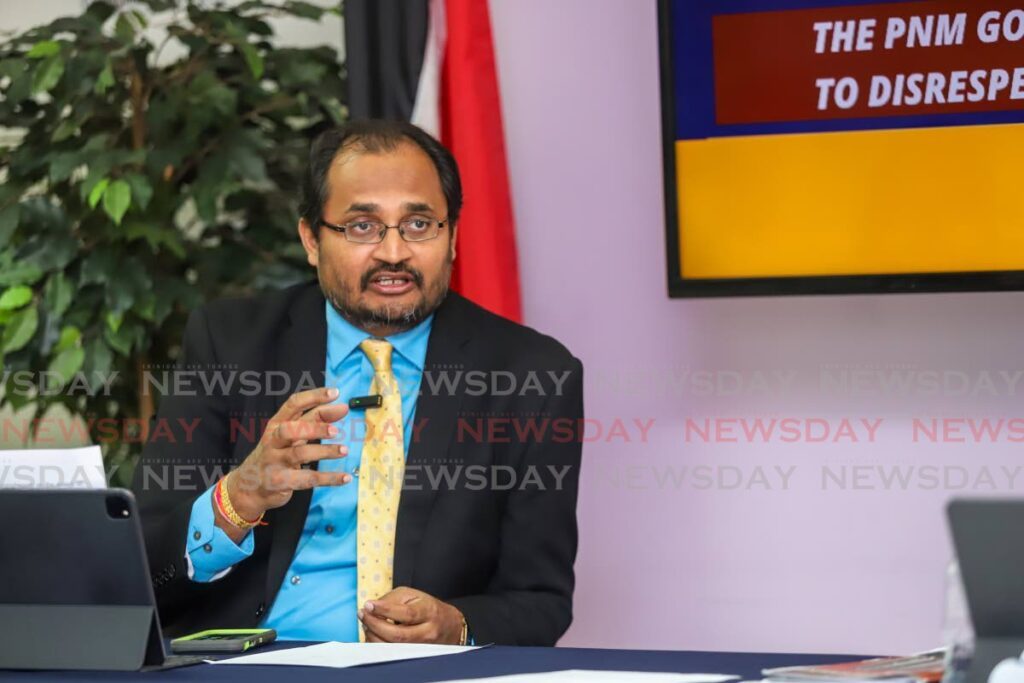Grim Christmas sales - Reflection of broader economic concerns

DINESH RAMBALLY
THIS CHRISTMAS season, as the last few, has been marred by high crime rates, economic uncertainty and rising costs. Retailers find themselves grappling with a disheartening reality – a significant dip in Christmas sales. The cheer and merriment typically associated with this time of year are overshadowed by a perfect storm of economic challenges, leaving both businesses and consumers in the lurch.
One of the primary contributors to the dismal sales figures is the surge in crime rates that has plagued our communities. The spike in thefts, robberies and vandalism has created an atmosphere of fear, discouraging shoppers from venturing out to crowded shopping centres either during the day or night.
Retailers, still reeling from the impact of the covid19 pandemic, now face an additional hurdle as potential customers opt for online shopping or simply stay home to avoid the risks associated with high-crime areas. The government has all but absolved itself of all responsibility. Visiting an ATM has now become a high-risk activity, and apart from robberies, skimming is now more prevalent.
Uncertainty regarding the government's economic plans has cast a long shadow over consumer confidence. The lack of a clear roadmap and consistent policies have left businesses and individuals alike hesitant to make significant financial commitments. Consumers are holding onto their wallets, unsure of how future economic policies may impact their financial stability, leading to a cautious approach towards holiday spending.
The continuing shroud of secrecy concerning the revision of the gas deal with BP and the fairy tale of the Dragon gas makes one think that the government is not being upfront with the population.
For many households, the burden of increased insurance rates has translated into less disposable income. As insurance premiums soar, families are forced to tighten their belts, diverting funds away from holiday shopping. The ripple effect is felt keenly by retailers, who see fewer customers willing to splurge on gifts and festive indulgences.
With utility rates poised for an upward trajectory, consumers are desperately attempting to save their funds to buffer against the impending rate hikes. The fear of higher energy bills and other essential services has prompted individuals to prioritise saving over spending during the holiday season. This shift in financial priorities has left retailers grappling with diminished foot traffic and lacklustre sales.
Was the splitting of T&TEC into power transmission and power generation really a good idea? How effective was this move and how much did the government save? Is the population now paying for this error?
The only narrative emerging from the lips of the Minister of Finance is tax, tax and more tax. Certainly, these are not very reassuring words to build consumer confidence. The looming uncertainty surrounding property tax has added another layer of anxiety for consumers. Faced with the prospect of increased tax burdens, individuals are adopting a cautious stance, diverting funds towards potential future obligations. This apprehension has translated into reduced spending on non-essential items, further exacerbating the challenges faced by retailers.
Basic food items, a staple of holiday feasts, have become more expensive, adding strain to already stretched budgets. The increases are not only the result of inflationary pressures but VAT on a number of items. Added to this is the non-payment of VAT refunds forcing retailers to pass the burden onto consumers.
The price increase in essential groceries has left consumers with less discretionary income to allocate towards holiday shopping. As the cost of living rises, individuals are compelled to cut back on festive expenditures, impacting the bottom line for retailers across the board.
A broader economic woe casting its shadow over this year’s Christmas sales is the pervasive inflationary trend. Inflation erodes the purchasing power of consumers, making every dollar stretch a little less. As the cost of goods and services rises, consumers find themselves grappling with the reality of diminished real incomes, prompting a more cautious approach to holiday spending.
This is actually causing people at the bottom end of the earning ladder to become the working poor as they struggle to make ends meet. Despite this, do not expect any respite from the government.
In conclusion, the dismal Christmas sales figures are not merely a reflection of consumer sentiment, but a symptom of a broader economic malaise. The confluence of rising crime rates, uncertainty in government economic plans, increased insurance rates, anticipation of utility rate hikes, property tax concerns, and the escalating prices of basic food items have all created a challenging environment for retailers.
As we navigate these troubled waters, should we hold on to Christmas hope that concerted efforts, both from the government and the private sector, will pave the way for a brighter economic future and, with it, a return to more festive holiday seasons?
Dinesh Rambally is the MP for Chaguanas West


Comments
"Grim Christmas sales – Reflection of broader economic concerns"